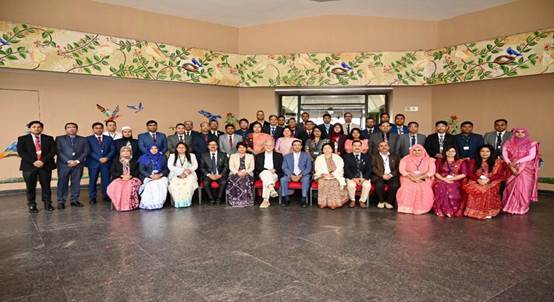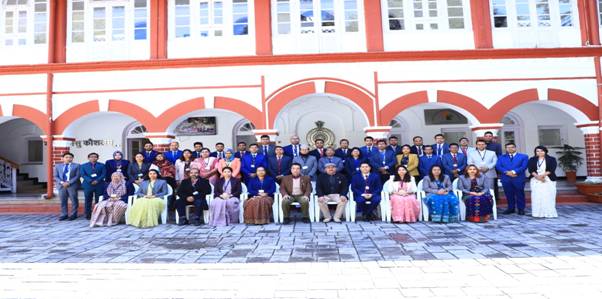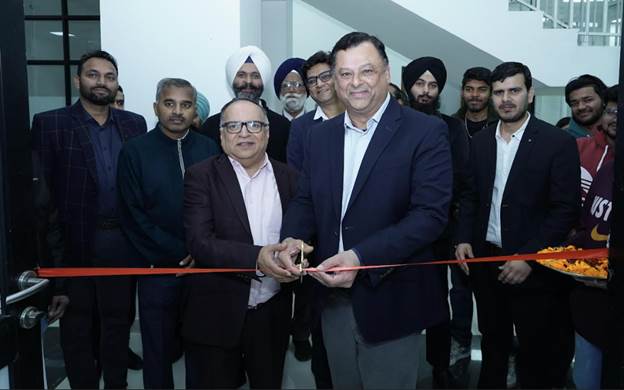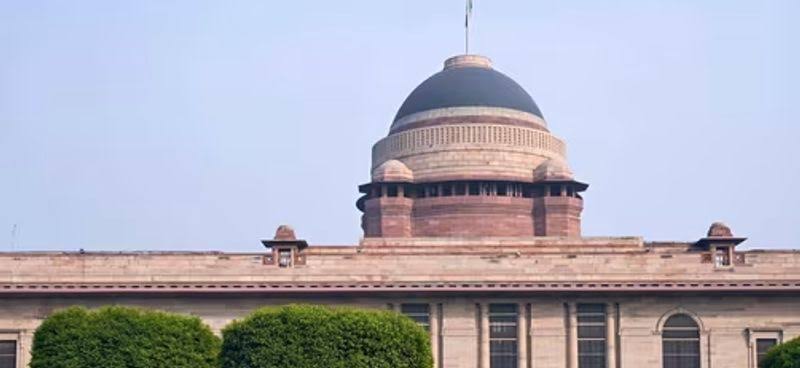Mussoorie, India (March 4, 2024) – The National Centre for Good Governance (NCGG) commenced the 71st Capacity Building Programme (CBP) for civil servants from Bangladesh today. This two-week program, held in partnership with the Ministry of External Affairs (MEA), aims to equip participants with the latest knowledge and skills for effective public service delivery.
 43 mid-career officers from various administrative positions, including Deputy Secretaries, Upazila Nirbahi Officers, Additional Deputy Commissioners, Senior Assistant Commissioners, and Assistant Commissioners, are participating in the program. The sessions will be conducted at NCGG’s facilities in Mussoorie and New Delhi, offering a diverse learning experience.
43 mid-career officers from various administrative positions, including Deputy Secretaries, Upazila Nirbahi Officers, Additional Deputy Commissioners, Senior Assistant Commissioners, and Assistant Commissioners, are participating in the program. The sessions will be conducted at NCGG’s facilities in Mussoorie and New Delhi, offering a diverse learning experience.
This program marks a significant milestone in NCGG’s ongoing collaboration with the Government of Bangladesh. With the successful completion of the 71st CBP, NCGG has now trained a total of 2600 Bangladeshi civil servants. This builds upon the achievements of the 69th and 70th CBPs, which collectively equipped 2500 participants with essential skills.
The CBPs are conducted under the MEA’s ITEC program, which fosters cooperation between India and developing countries through training and capacity-building initiatives. The program is implemented through Memoranda of Understanding (MoUs) signed by NCGG and the Government of Bangladesh. Recognizing the program’s effectiveness, a new MoU was signed to train an additional 1,800 Bangladeshi civil servants by 2025, following the completion of the initial phase that trained 1,500 participants. NCGG has already delivered training to 983 officers from Bangladesh as part of this initiative.
The inaugural session, chaired by NCGG Director General Shri V. Srinivas, highlighted the critical role of technology in driving effective governance. He emphasized the importance of Prime Minister Shri Narendra Modi’s vision of “Minimum Government, Maximum Governance” and how the CBP aligns with this vision by equipping participants with the tools and knowledge to streamline government processes and enhance service delivery.
Dr. A.P. Singh, Course Coordinator, elaborated on the program’s curriculum, designed to address the evolving landscape of governance. The program focuses on technological advancements that empower citizens, promote transparency, and ensure greater accountability in public administration. Dr Singh also mentioned that NCGG, in partnership with MEA, has successfully conducted training programs for civil servants from 17 countries, contributing to global knowledge exchange and capacity-building efforts.
The program will be supervised by a team of experts from NCGG, led by Dr A.P. Singh, Dr Sanjeev Sharma, Dr Mukesh Bhandari, and Shri Sanjay Dutt Pant. Through interactive sessions, case studies, and field visits, the program aims to provide participants with a comprehensive understanding of contemporary governance practices and equip them with the skills to implement these practices effectively within their respective roles.




